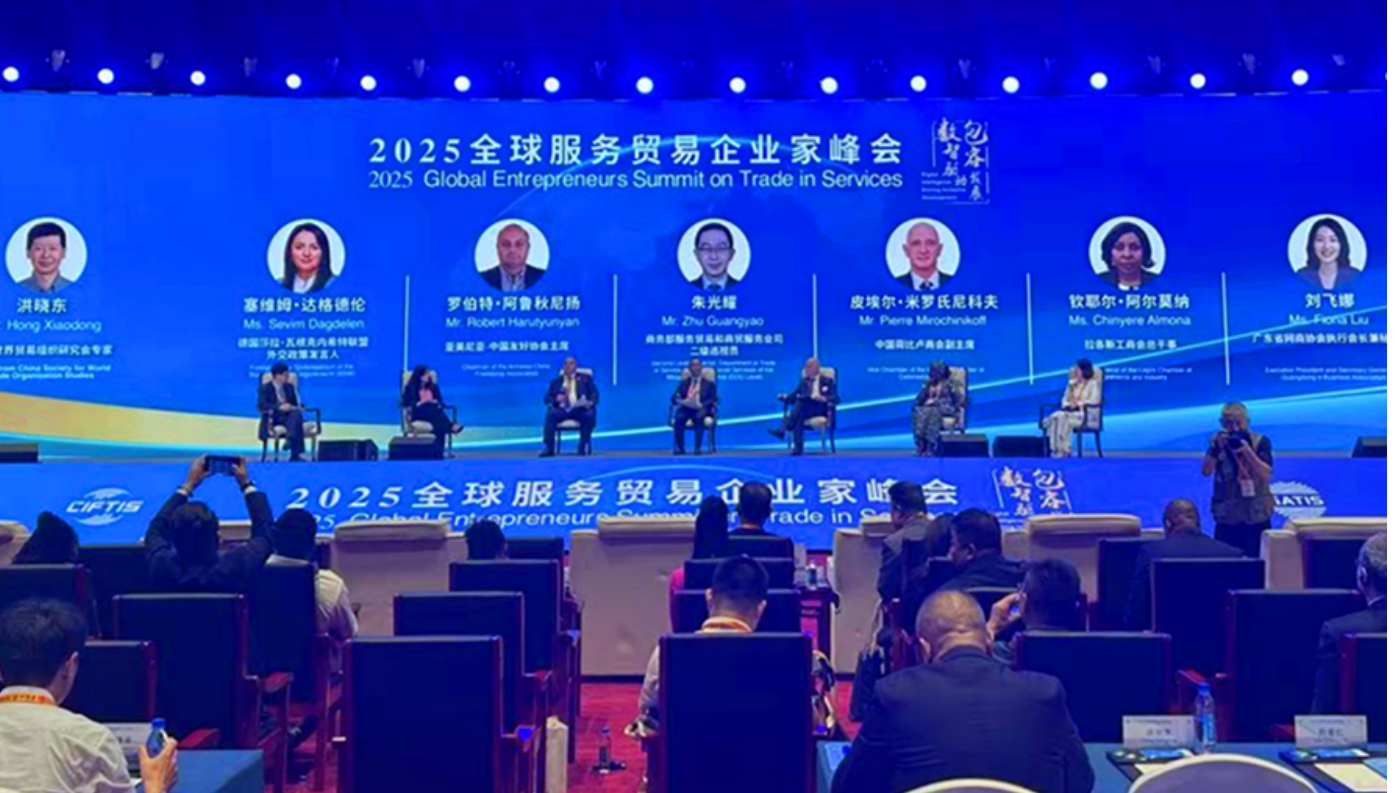More than 500 government officials, diplomats and business executives gathered in Beijing on Sept. 11 to discuss how digital technologies can drive more inclusive growth in global services trade.
The Global Entrepreneurs Summit on Trade in Services, held as part of the China International Fair for Trade in Services (CIFTIS), drew participants from Fortune 500 companies, international organizations and foreign embassies. Attendees joined both in person and online.

Experts join an international panel during the Global Entrepreneurs Summit on Trade in Services at the 2025 China International Fair for Trade in Services in Beijing, Sept. 11, 2025. [Photo/China.org.cn]
The fourth edition of the summit, themed "Digital Intelligence Driving Inclusive Development," was organized by the Global Alliance for Trade in Services (GATIS). The event has become a key fixture of CIFTIS, which ran Sept. 10-14 in the Chinese capital.
In his opening address, Jiang Zengwei, chairman of GATIS, said digital technologies enable rapid growth in the services trade, making it a key driver of economic expansion. However, he noted that challenges, including the digital divide, trade protectionism and supply chain restructuring, are creating uncertainty and instability in the sector.
Jiang said the summit aimed to build consensus, break down barriers and explore solutions through dialogue and cooperation. He said the goal was to help developing countries, small businesses, women and disabled people participate more equitably in the services trade and share in its benefits while ensuring sustainable growth.
The Ministry of Commerce released a work plan for Beijing to pilot the WTO Agreement on E-Commerce. The ministry developed the plan with five national authorities, including the Cyberspace Administration of China, to accelerate implementation of the agreement — the WTO's first global digital trade rule adopted in late 2024. Beijing is the only national pilot region and will lead the trial implementation.
GATIS also released its Trend Report on Inclusive Development of Global Trade in Services 2025. The report examines trends and changes in services trade amid digital transformation, identifies factors affecting inclusive development and establishes an evaluation framework. It proposes recommendations across policy, industry, facilitation and regulatory areas.
According to GATIS, against the backdrop of profound shifts in global economic, geopolitical, technological and security systems, trade in services— with its higher growth rate and more efficient resource utilization— has become a key engine of global economic development.
Global trade volume reached a record $33 trillion in 2024, up 3.7% from the previous year. The services trade grew 9%, adding about $500 billion compared to 2023 and driving overall world trade expansion.
GATIS also announced the establishment of a Digital Economy Committee and an Aviation Industry Committee to leverage digital technologies and AI in promoting services trade. The move aims to pool industry resources and enhance the alliance's service capabilities.
Dorothy Tembo, deputy executive director of the International Trade Centre, said the services trade has become a dominant pillar of the global economy. She added its growth reshapes global trade patterns, enhances goods trade and creates opportunities, especially for small- and medium-sized enterprises. Tembo stressed that digital technologies like AI must be integrated and coordinated to support inclusive development.


 Share:
Share: 




 京公網(wǎng)安備 11010802027341號
京公網(wǎng)安備 11010802027341號